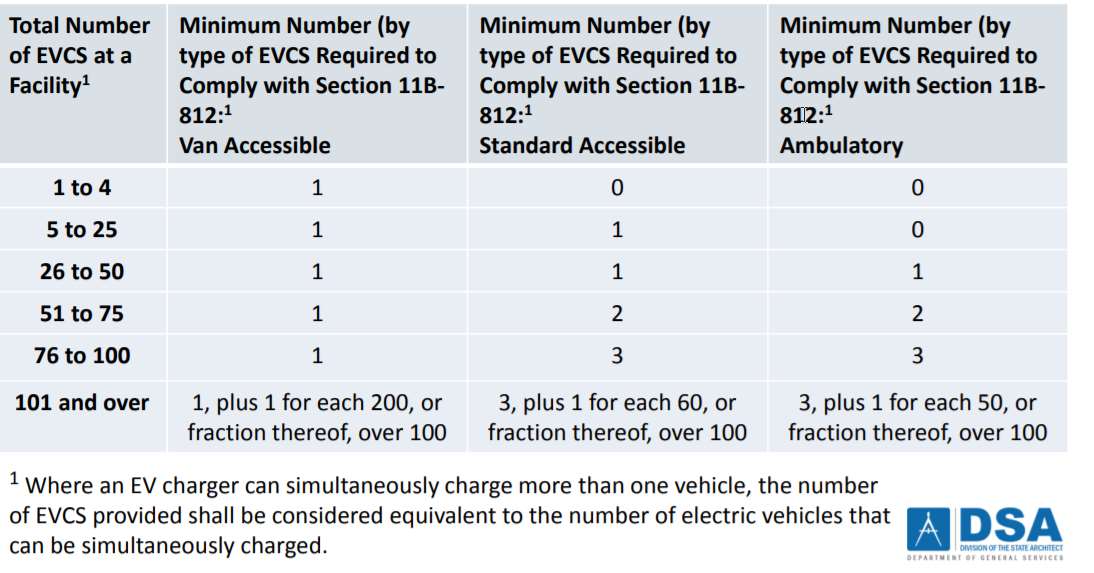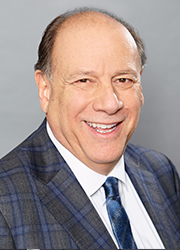21 June 2018
As the number of electric and hybrid vehicles in California continues to grow, we are also seeing the proliferation of electric vehicle charging stations in the parking areas provided by hotels, theaters, stadiums and hotel mixed-use properties. While owners and managers of these facilities are providing a much-needed service to their guests, many are unaware that – at least in California – if their facility provides electric vehicle charging stations, a certain number of them must be accessible to the disabled.
The regulations and requirements for these accessible charging stations are very specific, and the article below, written by my partner Marty Orlick, gives only a high-level summary of the scoping and technical requirements. This is an area where you really need to talk to the experts.
Are Your electric vehicle charging stations “accessible” to disabled guests
under California’s latest regulations?
by
Martin H. Orlick
Chair, JMBM’s ADA Compliance & Defense Group
With the surge in popularity of electric and hybrid vehicles, the need to provide Electric Vehicle Charging Stations (EVCS) is on the rise at hotels, theaters, stadiums, and hotel mixed-use properties. If your EVCS are not accessible to your disabled guests, here is what you need to know.
California’s Regulations for EVCS Accessibility
In California, if your commercial facility provides EVCS for your customers and guests, you must also provide a certain number of EVCS that are accessible.
California’s accessibility regulations for EVCS are in the 2016 California Building Code (CBC), and went into effect on January 1, 2017. The regulations supersede and expand upon California’s little-known “Interim Disabled Access Guidelines for Electric Vehicle Charging Stations” created in 1997.
The CBC accessibility regulations include both scoping requirements (what type of EVCS and how many) and technical requirements (where to locate EVCS, and how to make them accessible).
Scoping Requirements
The number and type of accessible EVCS required is determined by the total number of EVCS at a facility. When new EVCS are added to a site with existing EVCS, the total number of new and existing EVCS is used to determine the number of accessible EVCS.
The table below, provided by the California Division of the State Architect, sets forth these scoping requirements.
CBC 11B-228.3 Scoping TABLE 11B-228.3.2.1

Technical Requirements
Technical requirements apply only to new and altered EVCS; existing EVCS do not have to be altered to meet the new technical requirements. The table above includes the minimum number of EVCS for three of the four types of accessible EVCS under the CBC’s accessibility regulations: van accessible, standard accessible, and ambulatory. Each type of charging station has specific technical requirements, which are outlined in CBC 11B-812. The fourth type, “drive up,” is analogous to a motor fuel pump island at a gas station, and is also included in CBC 11B-812.
The technical requirements include accessible aisles, accessible routes, and electric vehicle charger requirements.
Technical provisions include specific requirements for signage. EV charging time limits can be applied to all users, including disabled users. Vehicles displaying accessible placards or license plates cannot park for unlimited periods of time at accessible EVCS, if the signage is in accordance with local ordinances.
Primary function areas must be accessible
Where transient parking or vehicle storage is the primary purpose or sole use of the facility, the installation of electric vehicle charging stations is considered a “primary function area” and to the maximum extent feasible, the path of travel to the charging stations, including restrooms, pay telephones and drinking fountains, would be required to be readily accessible to and useable by persons with disabilities. Additional attention to upgrading non-compliant paths of travel outside the project area would be required, under the 20% “disproportionality test.”
Although there are no federal standards for EVCS accessibility, provisions are being proposed. However, consistent with general guidance provided by the U.S. Access Board, if your facility provides EVCS for use by the general public then it must also be accessible to individuals with disabilities.
If you intend to (or are requested to) install electric vehicle charging stations at your property, you need to consider whether they are accessible to persons with disabilities. Since the proposed scoping and technical requirements are highly technical and complex, you should consult the experts before you design or install electric vehicle charging stations.
 Martin H. Orlick is one of the top ADA defense lawyers in the country. He has helped hotel, restaurant, retail and other commercial property owners defend more than 600 ADA cases. In addition to defending lawsuits and governmental investigations, Marty’s team of ADA specialists focuses on enterprise-wide ADA compliance and litigation prevention, including facilities, website and operational compliance. He is also is a senior member of the law firm’s Global Hospitality Group®, a partner in the real estate department, and a member of the American College of Real Estate Lawyers (ACREL). For more information about ADA compliance and defense, contact Marty Orlick at 415.984.9667 or morlick@jmbm.com.
Martin H. Orlick is one of the top ADA defense lawyers in the country. He has helped hotel, restaurant, retail and other commercial property owners defend more than 600 ADA cases. In addition to defending lawsuits and governmental investigations, Marty’s team of ADA specialists focuses on enterprise-wide ADA compliance and litigation prevention, including facilities, website and operational compliance. He is also is a senior member of the law firm’s Global Hospitality Group®, a partner in the real estate department, and a member of the American College of Real Estate Lawyers (ACREL). For more information about ADA compliance and defense, contact Marty Orlick at 415.984.9667 or morlick@jmbm.com.This is Jim Butler, author of www.HotelLawBlog.com and hotel lawyer, signing off. Please contact us if you would like to discuss any issues or development that affect your hotel interests. We would like to see if our experience might help you create value or avoid unnecessary pitfalls. Who’s your hotel lawyer?
 Jim Butler is a founding partner of JMBM and JMBM’s Global Hospitality Group® which provides business and legal advice to hotel owners, developers and investors. This advice covers hotel purchase, sale, development, financing, franchise, management, labor & employment, litigation, ADA, IP, EB-5 matters any many other areas.
Jim Butler is a founding partner of JMBM and JMBM’s Global Hospitality Group® which provides business and legal advice to hotel owners, developers and investors. This advice covers hotel purchase, sale, development, financing, franchise, management, labor & employment, litigation, ADA, IP, EB-5 matters any many other areas.
Jim is recognized as one of the top hotel lawyers in the world and has led the Global Hospitality Group® in more than $125 billion of hotel transactions and more than 4,700 hotel properties located around the globe.
Jim’s group has advised on more than 100 EB-5 projects, closed more than $1.5 billion of EB-5 financing, and sourced more than half of that for our clients.
Contact Jim at +1-310.201-3526 or JButler@jmbm.com



